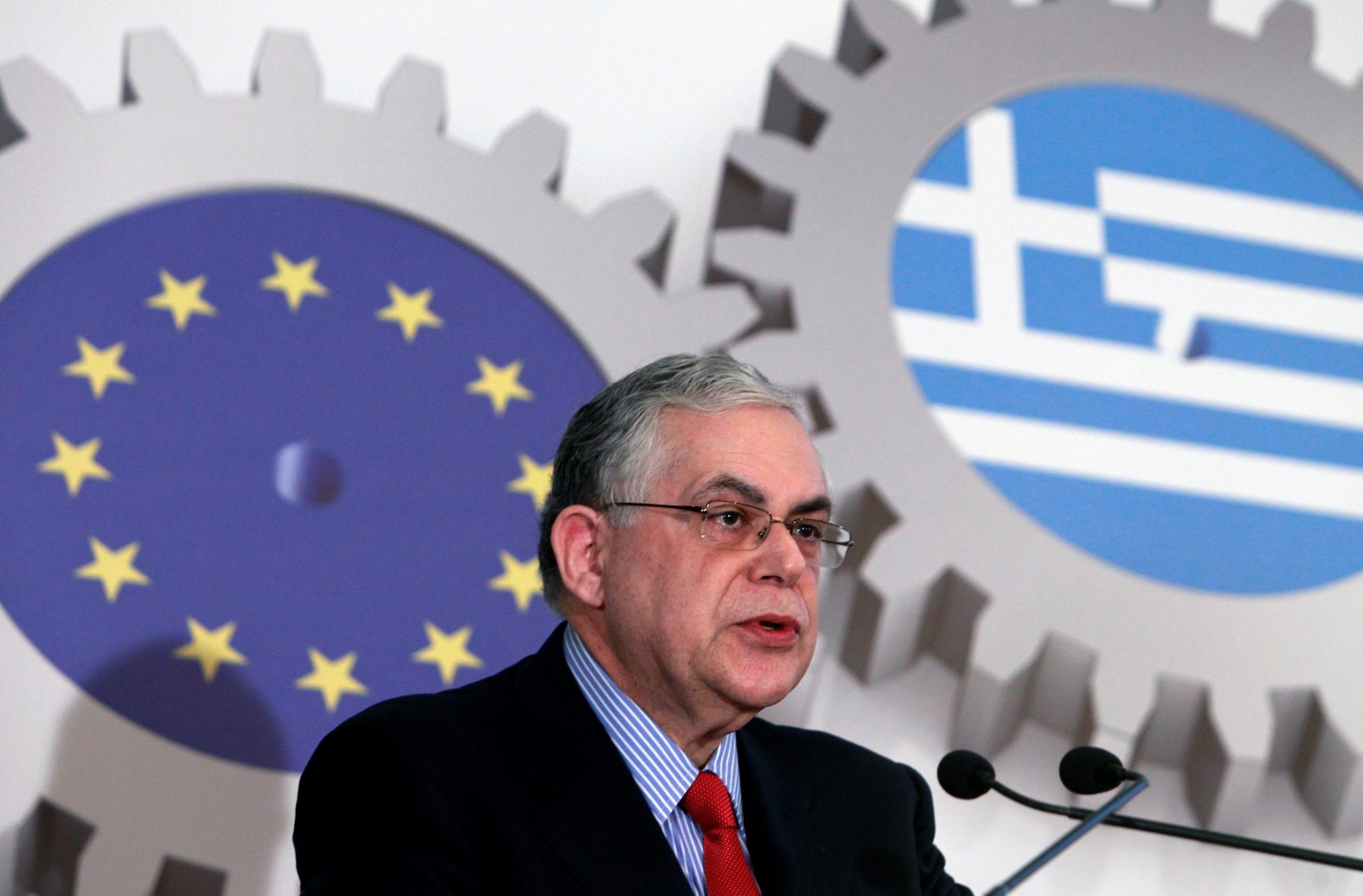Former Greek prime minister and ECB vice-president Lucas Papademos, in one of his rare public appearances, on Thursday emphasized that there was no “alternative solution” in late 2011 to an unprecedented private sector involvement (PSI) engineered the following year to alleviate Greece’s massive debt burden at the time.
In addressing an Athens audience, he qualified this by saying “…restructuring was completely linked to negotiations and an agreement on the second (bailout) memorandum…It was a condition for Greece’s support by its European partners,” he said, reminding that the specific debt restructuring was the largest in modern history for any country.
Papademos, who served as prime minister from November 2011 to May 2012 as the head of a national unity government in the wake of the punishing Greek debt crisis, spoke at the “Metapolitefsi: 50 Years After” event organized by the National Bank of Greece’s (NBG) Cultural Foundation at the National Gallery, on the occasion of this year’s half-century anniversary of the restoration of democracy in Greece.
Pressed on the issue, Papademos said he did not believe debt restructuring was either “necessary or advisable” in the very first phase of the financial crisis.
“However, the situation changed at the end of spring 2011 due to fiscal developments and problems that emerged with implementation of (the agreed to) policy…This decision wasn’t taken by me nor by the coalition government, it was adopted at the (EU) summit in October 2011 and, according to a decision by Eurozone leaders, it had to be linked to a new economic adjustment program; to a new memorandum which, in combination with debt restructuring, would be linked with 130 billion euros in financial support for the country.”
Turning to the strategic decision by the country’s political and central bank leadership in the 1990s to join the ambitious Economic and Monetary Union (EMU) as an inaugural member, Papademos said the assessment of Greece’s entry into the common euro-area was and remains positive.
“Given the painful experience of the economic crisis, few remember that the EMU accession process and the period that immediately followed were punctuated by strong economic growth and an increase in Greeks’ standard of living…For 12 years the country achieved high and continuous economic growth combined with stability. Greece’s accession to the euro-zone was the right decision.”



